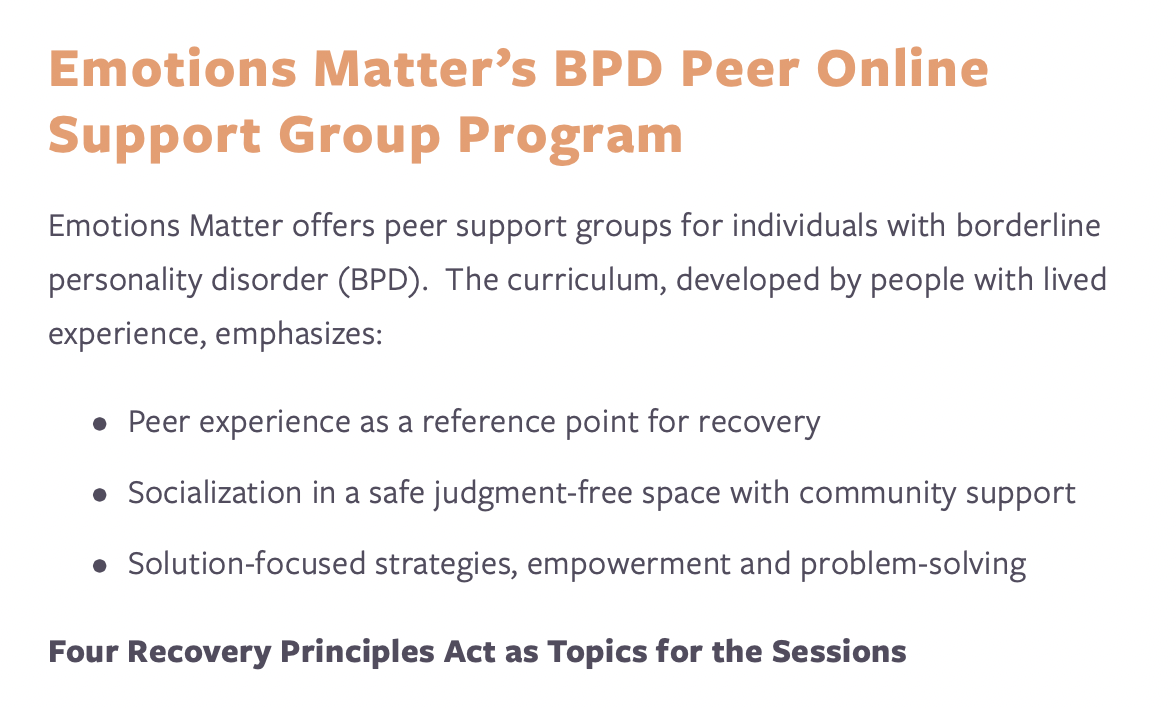Why peer support matters in BPD treatment
In our advocacy with Bold Beautiful Borderline we believe in peer support to our literal cores. We have seen peer support fuel our recovery and the recovery of others. Peer support doesn’t change our symptoms inherently but learning that other people are struggling is helpful because it leaves us feeling less alone and shows us what other people are doing to manage their symptoms.
Observing my peers and their coping has taught me so much about my own.
So, what is peer support?
Peer support in mental health involves people with lived experience of mental health disorders or struggles providing support and encouragement to others who are going through similar experiences.
Peers offer emotional support, advice, and validation, and help build community commonly associated with a specific mental illness. They do this essentially by saying “i’m with you” and “we’re in the shit together”.
This is SO important within the BPD community because of how stigmatized our symptoms are. Our symptoms are demonized and our hurt is ignored because often our behavior can be pretty big and have unfortunate outcomes.
We know we aren’t trying to hurt people but sometimes we do because how we get our needs met isn’t always helpful. This is why DBT can be profound - DBT Skills teach us to get our needs met more effectively through emotion regulation, distress tolerance, interpersonal effectiveness, and mindfulness strategies.
Peer support hasn’t been built into DBT treatment
The focus of DBT has historically been on individual and group therapy delivered by trained clinicians.
One reason for peer support being left out in the structured nature of DBT is because it focuses so much on specific modalities: individual therapy, group skills training, phone coaching, and therapist consultation teams. This structured approach may have left little room for integrating peer support formally into traditional DBT programs.
Another reason could be that the stigma results in formal programs not trusting us to be good providers of peer support.
We are fighting back. Peer support is just as important as learning skills because it reinforces our skills.
What peer support options are out there?
Both our program, SuperFeelers, and Emotions Matter programs are led by individuals trained to provide crisis support but also individuals who either have BPD or work with individuals with BPD so there’s little to no stigma about Borderline.
As always, follow us to learn more at:

